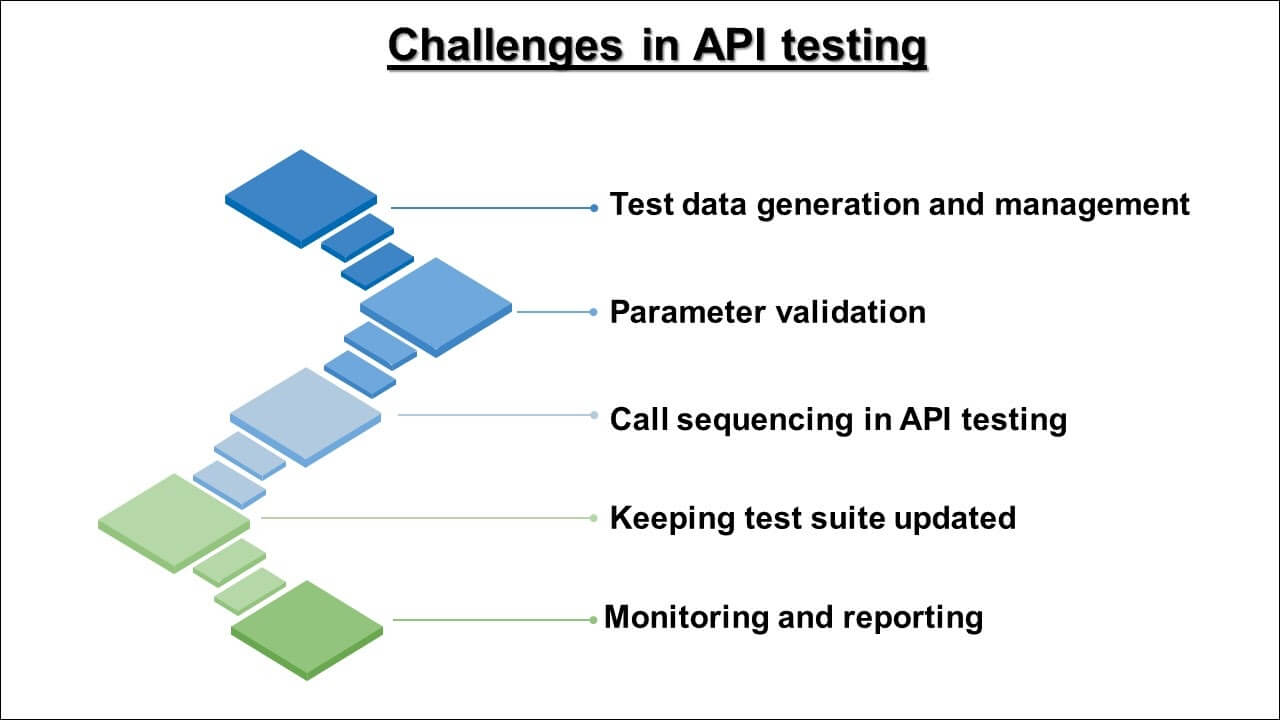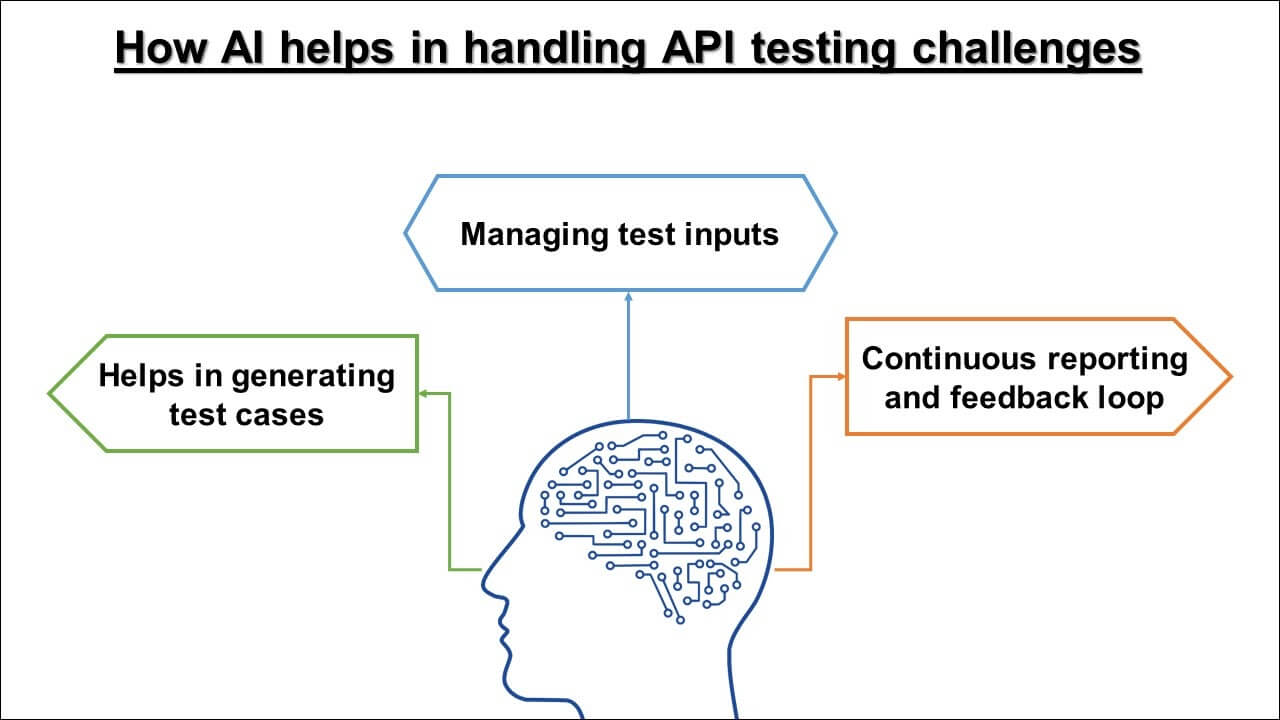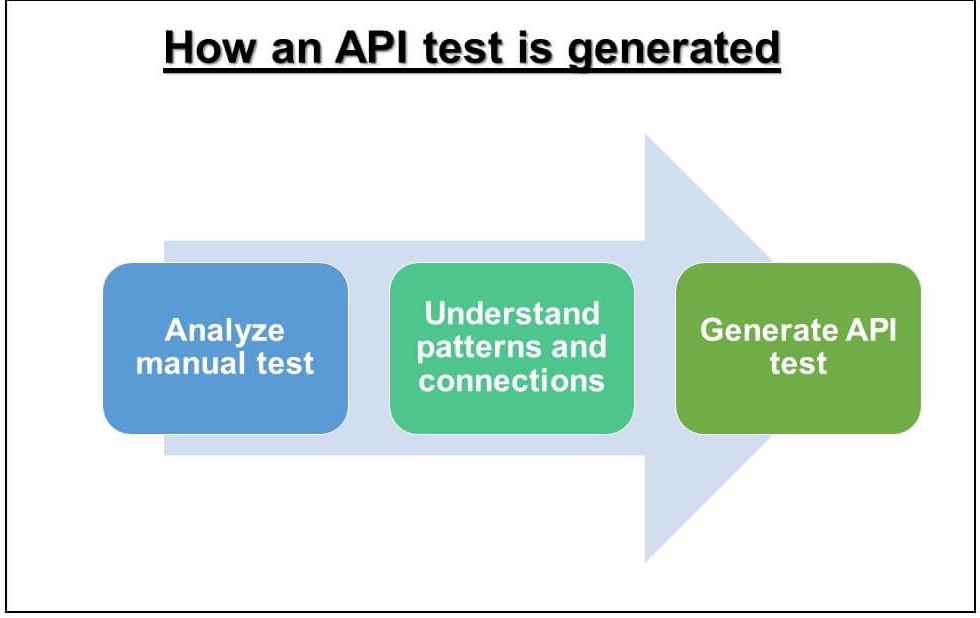Accelerate Success with AI-Powered Test Automation – Smarter, Faster, Flawless
Start free trialAPI aka Application programming interface connects various layers of a software application and enables the communication between them. A typical software application has three layers: The presentation layer, Business layer, and Database layer. APIs work within the gamut of the business layer which encapsulates the business logic of the application.
APIs have a predefined exchange protocol, expected inputs, set of data processing operations, and desired outputs. Different clients can use the API without worrying about the business logic, as long as they adhere to the defined rules for using that particular API. In nutshell, APIs act as a formatted contract between client and API service provider to ensure that they communicate with each other seamlessly. API testing verifies and validates this contract by checking the compatibility and interactions between various services.
There are several tools that are used for API testing, like SoapUI, Postman, JMeter etc. Irrespective of the tool that is used, there are certain challenges which are common across the board with API testing.
Challenges in API Testing
With the rise of micro-service architecture and cloud-based systems, APIs have become even more important as they facilitate communication between various services. Testing these APIs is vital to ensure glitch-free communication between the services. However, API testing can face certain roadblocks since they work with heterogeneous systems.

- Test data generation and management
APIs accept predefined parameters as inputs, execute a process based on input parameters and return the output to the calling module/API. An API needs to be tested thoroughly for a variety of valid/invalid inputs. This leads to a huge amount of data sets that need to be generated and maintained for reusability. The generation and maintenance of data and keeping it current is a huge overhead for the testing team.
- Parameter validation
As stated above, input parameters play a key role in API testing. APIs should be tested for various combinations of data inputs. The number of possible test combinations rises exponentially with the increase in the number of input parameters. APIs can be invoked from different modules, or from other APIs, this further adds complexity in parameter exchange, especially in the case of large-scale software applications. Sometimes, limited knowledge about the APIs gives rise to situations where an invalid parameter is passed to the API. The test cases should be designed to test all such possible scenarios.
- Call sequencing in API testing
Every software works on the basic premise of the correct flow of logic. Correct call sequencing to APIs and submodules is important to ensure that the flow is not disrupted. In the case of a multi-threaded environment, it can become a huge challenge. Additionally, API call sequences need to be checked all over again after bug fixes and/or functionality changes.
- Keeping test suite updated
An API needs to be updated every time there is a change in business logic. Maintaining API version inventory and ensuring that the test suite is in sync with the changes is an extremely important and equally tedious task.
- Monitoring and reporting
APIs throw an error every time there is a test failure. The failure could be a true failure (as expected), or a false failure. API tests need to be closely monitored and the result of testing should be communicated to the involved teams. But with multiple sprints in Agile and multi-threaded systems, monitoring and reporting can be a herculean task.
How AI can Help in Overcoming API Testing Challenges
Software testing augmented with the power of artificial intelligence can help in overcoming the challenges mentioned in the previous section.

- Managing test inputs
AI adds value to API testing by understanding and learning from the data patterns and combinations. It can then generate a huge volume of test data for the input parameters. AI-based test modules can effectively create a massive data pool by trying various combinations. This saves the time and effort of the testing team.
- Helps in generating test cases
AI-based testing can contribute significantly by generating test cases for proper call sequencing and parameter validation by understanding, recognizing, and analyzing the call sequencing and various parameter combinations. Thus, taking the workload off the testing team and freeing them up to focus on other aspects of testing.
AI-based test systems also ensure that the test suite is always updated based on new feature additions or modifications in already existing features.
- Continuous reporting and feedback
Every test cycle generates reports which have to be analyzed and shared with the testing and development teams. However, doing it manually after every test cycle is a time-consuming job. AI-based testing and reporting systems help in generating reports, analyzing, and sharing them with ease across the board.
Webomates and API Testing
Webomates’ patented AI-based testing framework helps in overcoming API testing hurdles by generating test cases with minimal manual involvement, executes them, analyzes the results, and provides detailed reports. Sounds simple enough? That is exactly our intention, to make API testing easy for our customers.
Webomates CQ works in a well-knit ecosystem of ingenious AI engines which make API testing quick and easy.
Our codeless engine generates API tests from a basic script.

This process adds scalability to the testing process. For any changes in API, the script can be altered and the test engine generates a detailed test case.
Once the scripts are executed, our Intelligent Test Automation framework takes over to prepare detailed test reports in an easily comprehensible format. Every successful test is reported and for every failure, a detailed test failure analysis is done by our AI Defect Predictor.
We specialize in API performance and API security testing.

Webomates’ AI based testing framework makes API testing more efficient for its customers.
If you are interested in learning more about the API testing services offered by Webomates, click here to schedule a demo. You can also reach out to us at info@webomates.com.
If you liked this blog, then please like/follow us Webomates or Aseem.
Read Next –
Test Automation vs Manual Testing
Exploratory testing in software testing
Tags: AI Testing, API Testing, Artificial Intelligence, Intelligent Test Automation, Postman, REST API, Swagger, Test Automation

Leave a Reply